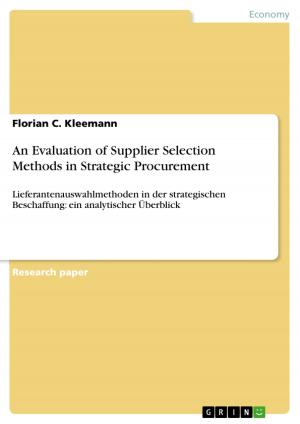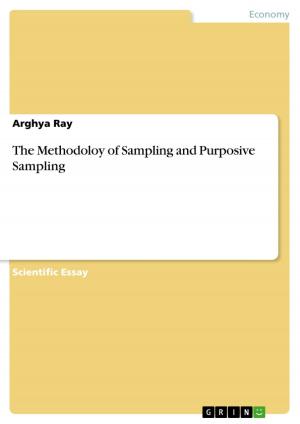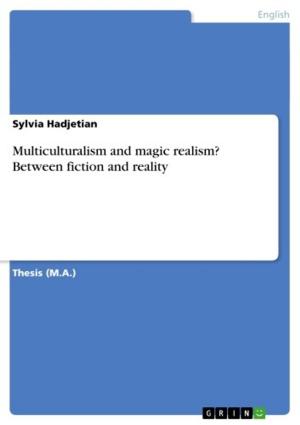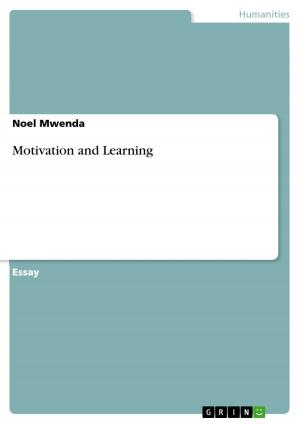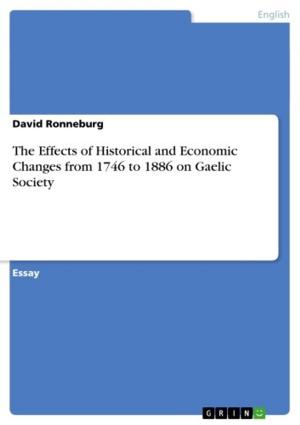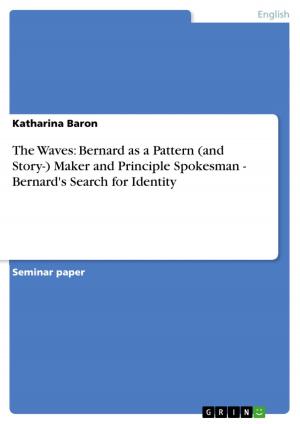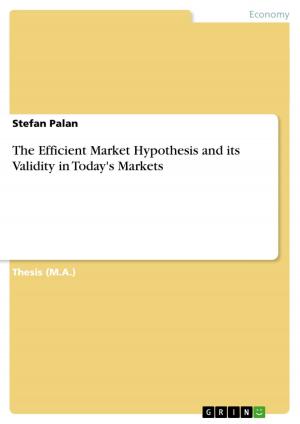Of desire and passion - A comparison between Beyond the Horizon and Desire under the Elms
A comparison between Beyond the Horizon and Desire under the Elms
Nonfiction, Entertainment, Drama, Anthologies| Author: | Nadine Kröschel | ISBN: | 9783638513456 |
| Publisher: | GRIN Publishing | Publication: | June 26, 2006 |
| Imprint: | GRIN Publishing | Language: | English |
| Author: | Nadine Kröschel |
| ISBN: | 9783638513456 |
| Publisher: | GRIN Publishing |
| Publication: | June 26, 2006 |
| Imprint: | GRIN Publishing |
| Language: | English |
Seminar paper from the year 2003 in the subject American Studies - Literature, grade: 2,0, University of Marburg (FB 10: Fremdsprachliche Philologien), course: Procincetown Players, 7 entries in the bibliography, language: English, abstract: In 1918, Eugene O'Neill advocated a life within reality. Living outside reality, he sees as destructive. With this in mind, he wrote Beyond the Horizon. One of his later plays, Desire under the Elms, reverts in character to Beyond the Horizon, though it exhibits a fine progress in solidity and finish. Desire under the Elms is the last of O'Neill's naturalistic plays and the first in which he re-created the starkness of Greek tragedy. The play involves O'Neill's own family conflicts and Freudian treatment of sexual themes.Beyond the Horizon is O'Neill's first major statement of the theme of self-deception, pipe dreams and life-lies, resulting out of passion and desire. At this point of his career, O'Neill believed that one must engage in the quest to find the ultimate meaning of life, to discover the mysterious behind-life force that lies just beyond the horizon. To his mind this was in fact the pursuit of a goal. Further in his career as a playwright, he begins to believe that just having a dream that can survive through time is more important than having a dream that is attainable or the pursuit of a dream. In Beyond the Horizon, Eugene O'Neill dramatizes the conflict of the opposing ideals of adventure and security, emotion and ratio, embodied in the two brothers, Robert and Andrew. O'Neill identifies himself with the lead character, Robert Mayo whereas he compares Roberts brother Andrew to his brother Jamie. Both brothers represent two parts, the poetic, emotional dreamer and the rational down-to-earth farmer. During the play, both brothers give up their desires and passions; one of them flees into materialism, the other into a world of pipe dreams. When O'Neill wrote Beyond the Horizon, he was only able to see and to tolerate the emotional level of behaving and acting; in other words: rationalism. That is, in his point of view, something negative, which must be prevented. But his opinion changes: in 1924, he tolerates that motif although he still neither likes it nor considers it as a good value. The emotional way of behaving still overweighs in Desire under the Elms but there can also be found a profound way of rationalism in the behaviour of his protagonists. This change of O'Neill's opinion comes out clearly in the characterisation of Abbie Putnam, who changes from rationalism to emotionalism. The fact that O'Neill changes his point of view made him a child of his time. [...]
Seminar paper from the year 2003 in the subject American Studies - Literature, grade: 2,0, University of Marburg (FB 10: Fremdsprachliche Philologien), course: Procincetown Players, 7 entries in the bibliography, language: English, abstract: In 1918, Eugene O'Neill advocated a life within reality. Living outside reality, he sees as destructive. With this in mind, he wrote Beyond the Horizon. One of his later plays, Desire under the Elms, reverts in character to Beyond the Horizon, though it exhibits a fine progress in solidity and finish. Desire under the Elms is the last of O'Neill's naturalistic plays and the first in which he re-created the starkness of Greek tragedy. The play involves O'Neill's own family conflicts and Freudian treatment of sexual themes.Beyond the Horizon is O'Neill's first major statement of the theme of self-deception, pipe dreams and life-lies, resulting out of passion and desire. At this point of his career, O'Neill believed that one must engage in the quest to find the ultimate meaning of life, to discover the mysterious behind-life force that lies just beyond the horizon. To his mind this was in fact the pursuit of a goal. Further in his career as a playwright, he begins to believe that just having a dream that can survive through time is more important than having a dream that is attainable or the pursuit of a dream. In Beyond the Horizon, Eugene O'Neill dramatizes the conflict of the opposing ideals of adventure and security, emotion and ratio, embodied in the two brothers, Robert and Andrew. O'Neill identifies himself with the lead character, Robert Mayo whereas he compares Roberts brother Andrew to his brother Jamie. Both brothers represent two parts, the poetic, emotional dreamer and the rational down-to-earth farmer. During the play, both brothers give up their desires and passions; one of them flees into materialism, the other into a world of pipe dreams. When O'Neill wrote Beyond the Horizon, he was only able to see and to tolerate the emotional level of behaving and acting; in other words: rationalism. That is, in his point of view, something negative, which must be prevented. But his opinion changes: in 1924, he tolerates that motif although he still neither likes it nor considers it as a good value. The emotional way of behaving still overweighs in Desire under the Elms but there can also be found a profound way of rationalism in the behaviour of his protagonists. This change of O'Neill's opinion comes out clearly in the characterisation of Abbie Putnam, who changes from rationalism to emotionalism. The fact that O'Neill changes his point of view made him a child of his time. [...]

